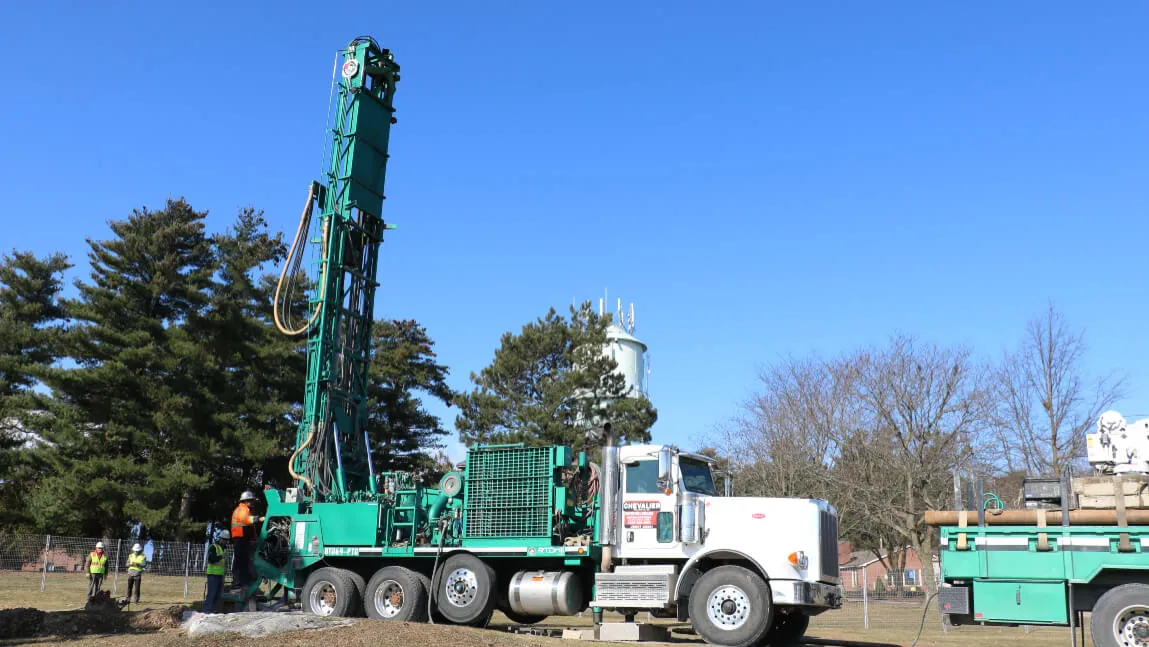Last year on Earth Day, 2023, the University of Vermont released its Comprehensive Sustainability Plan with the ambitious goal of reaching climate neutrality by 2030. A crucial part of the plan is adoption of renewable energy to heat and cool campus buildings.
UVM took a big step last month in exploring renewable options by drilling a 510-foot-deep geothermal test well on the Athletic Campus. Thanks to funding from the Sustainable Campus Fund, plans are underway to drill a second test site on the Trinity Campus.
“We are working hard to increase renewable energy for our campus buildings and dramatically reduce natural gas use,” said Elizabeth Palchak, UVM’s director of sustainability. “One of the most promising technologies is geothermal.”
While the university remains committed to renewables like wind and solar, geothermal presents unique advantages. Associate Professor of Civil and Environmental Engineering Ehsan Ghazanfari of CEMS explains that, hundreds of feet below ground, heat energy is stored in rock at a relatively constant temperature. Geothermal systems harness this natural heat to warm water in pipes. The fluid is then transferred by heat pumps to cool buildings in the summer and heat them in the winter. Heat energy is available all the time, and geothermal systems have a minimal environmental footprint.
With input from campus experts, UVM lead engineer Mike Pelletier is leading the work on test wells on campus.
“The test well on the Athletic Campus is a part of a broader study of the energy usage in that part of campus. Using geothermal is an innovative way to gain efficiencies in how we heat and cool those buildings,” Pelletier said.
Pelletier has identified multiple promising sites for additional wells, which are important to gain a better understanding of options at UVM for this technology. Underground conditions on campus vary considerably—while the substrate on the Athletic Campus is rocky, Trinity Campus contains deep reservoirs of sand.
The existing well will be subjected to a series of tests to determine temperature, permeability, and other characteristics of the rock. Haley & Aldrich, a consulting firm with extensive experience in geothermal technology, will conduct an analysis of the test wells that will inform UVM’s decisions moving forward.
“This project offers a lot of promise to our decarbonization efforts but also offers opportunities to involve students and faculty with our staff in exploring this innovative approach to renewable energy generation,” Palchak said.
UVM’s Comprehensive Sustainability Plan prioritizes decarbonization and features important goals and strategies in the areas of operations, governance and planning, and research and learning. Goals of the CSP include Installing renewable energy heating systems in new buildings and in major renovations, and piloting geothermal energy projects on campus to test feasibility for broad implementation.
